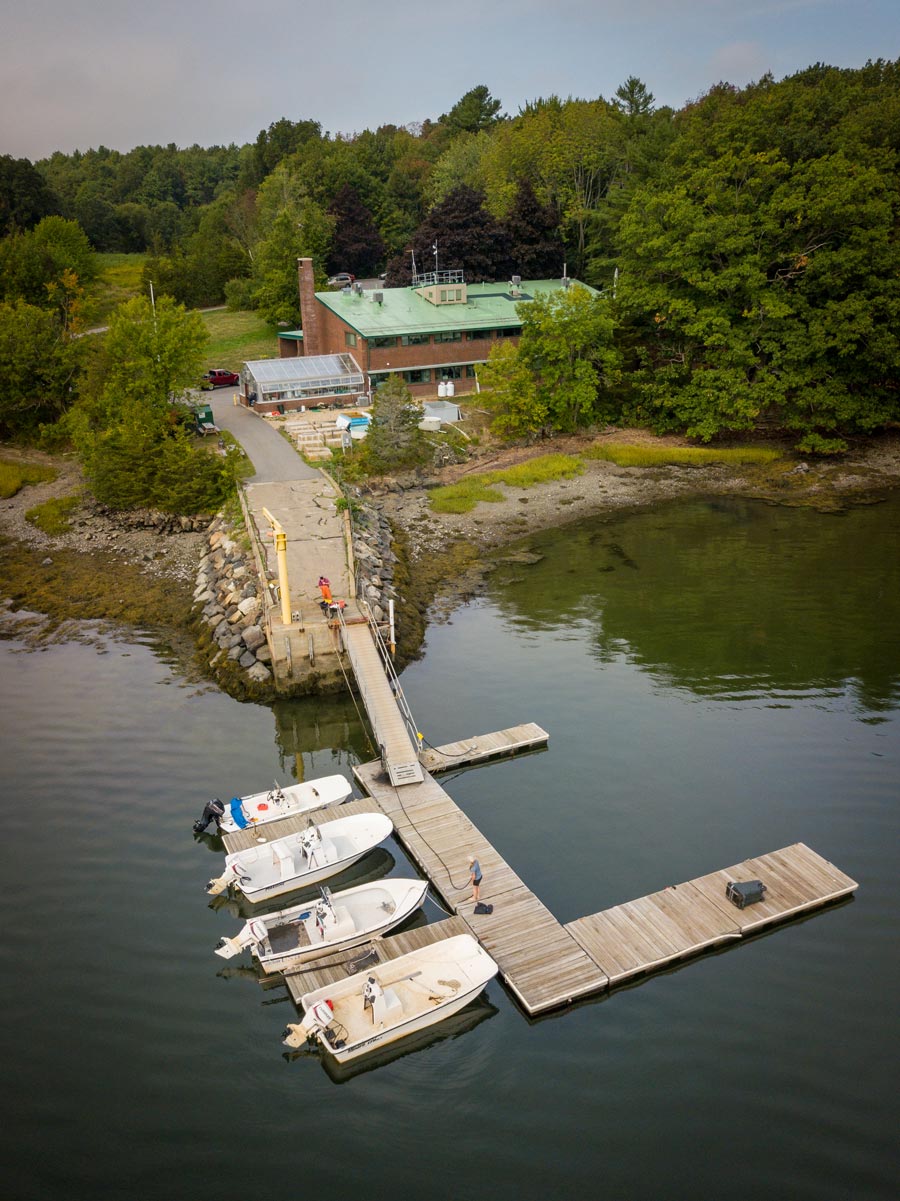
or the last half century, scientists and students have kept their fingers on the pulse of Great Bay and coastal New Hampshire thanks to a UNH outpost tucked along the shores of the state’s largest estuary.
The Jackson Estuarine Laboratory, located on Great Bay’s Adams Point, celebrates its 50th anniversary this year — that’s five decades of research on microbes, oysters, seaweeds, eelgrass, lobsters, horseshoe crabs, water quality and much more. A lot has changed since 1970, but one thing has remained steadfast: Jackson Lab’s commitment to advancing the understanding and preservation of estuarine, coastal and marine ecosystems.
Hailed as one of the first academic labs in the nation designated solely for the estuarine sciences, Jackson Lab serves as a vital resource for scientists and students to conduct their research, as well as local, state and federal natural resource management agencies that rely on critical ecological data collected by the lab’s scientists. Over the years, Jackson Lab scientists have trained more than 100 graduate students spanning two generations and have published upward of 600 peer-reviewed journal articles on estuarine- and marine-related topics.
The concept for the development of the lab came from Galen Jones, a UNH microbiologist who helped raise the funds for its construction and served as its first director. The lab itself is named after UNH zoologist Floyd Jackson, who published the first scientific study of Great Bay in 1922. Shortly after construction, researchers were involved in the fight to prevent the development of an oil refinery in the bay — an idea brought forth by Greek shipping magnate Aristotle Onassis that was successfully fended off thanks in part to the researchers’ data indicating that Great Bay could be irreparably harmed by its presence. This small but dedicated team of scientists later helped to establish the Great Bay Estuarine Research Reserve and paved the way for future researchers to continue studying local ecosystems.

David Burdick, UNH research associate professor of coastal ecology and restoration and current Jackson Lab director, says the lab’s research rather than academic bent — the majority of staff are research faculty — mirrors its own adaptability. “We can follow wherever the grant opportunities exist, so it puts us on the edge of science — we’re evolving and changing all the time,” he explains.
Just like Great Bay itself.